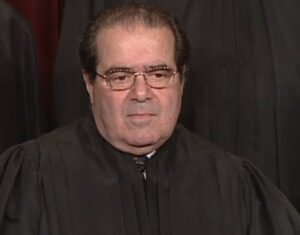Scalia's death likely to alter outcome in Friedrichs lawsuit

With the death of Supreme Court Justice Antonin Scalia, the California Teachers Association will likely gain an unexpected victory, at least for now, in its legal battle to continue the right require all teachers to pay the costs of collective bargaining.
That was the issue raised in Friedrichs v. the State of California and the CTA, which the U.S. Supreme Court will rule on by June. Court observers had predicted that Scalia would join the four other conservative justices to make a 5-4 decision overturning Abood v. Detroit Board of Education, a four-decades old Supreme Court decision that said that states could require all public employees to split the expenses of bargaining, known as “agency” or “fair share” fees.
A majority decision agreeing with the plaintiffs – Rebecca Friedrichs, an elementary school teacher in the Savanna School District in Anaheim and nine other non-union teachers – could severely weaken the financial health and political clout of the CTA and other public employee unions. The suing teachers contend that mandatory fees coerce them to support bargaining positions they disagree with, violating their constitutional right to free speech.
With a possible 4-4 tie, the court would defer to the ruling of the U.S. 9th Circuit Court of Appeals on the side of the union. If that were to happen, the Court of Appeals decision would uphold only California’s law permitting mandatory fair-share fees and not affect the other two dozen states that also have passed similar statutes.
In its pro-forma ruling in 2014, the Appeals Court didn’t consider the merits of the case, nor was it asked to. The Washington, D.C.-based Center for Individual Rights, which filed the lawsuit on behalf of the plaintiff teachers, had asked the lower courts to expedite a decision without a full trial so that the Supreme Court could directly reconsider the Abood decision.
The center’s lawyers had reason to believe the majority on the court would agree with them. In a ruling in 2014 in a related case, Harris v. Quinn, Scalia and other conservatives called the Abood decision “troubling.” Although the court didn’t overturn Abood then on technical grounds, Scalia and other conservatives in a concurring opinion invited a lawsuit directly challenging it. The Scalia’s death likely to alter outcome in Friedrichs lawsuit | EdSource:
